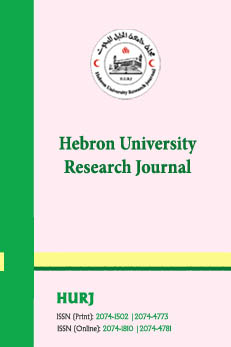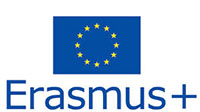Psychological and Educational Counseling
Course Description
View Course description as PDF file:
Specialization Compulsory Requirements
32711 Psychological Tests- Advanced
This course focuses on the use of psychological tests and scales in counseling processes. The course includes the psychometric properties of psychological tests; the selection criteria; how to implement psychological tests; interpretation of psychological tests; and use of results in the counseling process. This course also includes analysis and criticism of intelligence, objective, and projective personality tests. As well as training students to use these tests and employ them in the counseling process
32712 Group Counseling
This course reviews the concept and application of group counseling and its links with individual and group counseling interventions. As well as the mechanism of forming the counselling groups for the sake of building an integrated plan for managing the counselling group. On the practical part, students are trained on conducting and analyzing collective counselling programs.. Also, students are assigned to build a counselling program based on the recognized scientific tools such as group counseling theories (cognitive, behavioral, and a reality based therapy).
32713 Professional & Rehabilitation Counseling
This course deals with a general framework of vocational guidance and exploring the needed criteria for a meaningful career choice, and the stages of making a sound vocational decision. Theories related to vocational choice are also reviewed, such as (Holland’s theory, Anne Roux, and Jens Berg). Evaluation strategies and their applications are identified based on the previous theories. The course deals with identifying the local reality of vocational counselling through applying vocational counselling tests to the ninth and tenth grades in schools
32714 School Counseling and its Skills
This course deals with two dimensions: the nature of school counseling, in terms of the nature of the counselor’s work; the counseling roles; the stages of the counseling process in both its individual and group parts; the preparation of counseling plans; and the management of counseling files at schools. The second dimension includes the counseling skills used in counseling work within both theoretical and applied framework, such as (listening skills, reflecting feelings, asking questions, reflecting the content, summarizing, empathizing, confronting, interpreting, and analyzing behavior) through role-playing and showing applied films for these skills
32730 Counseling Theories- Advanced
This course focuses on introducing students to the concept of theory in the counseling process and reviewing the specialized theories in psychological and educational counseling (cognitive, humanistic, behavioral, analytical, realism, gestalt, cognitive, and behavioral) through the foundations and principles to which these theories belong and the basic concepts of each. In the applied aspect, the techniques used in each theory and how to employ them in specialized extension work are reviewed
32731 Research Designs and Methods
This course deals with the concept of statistical design, its purposes, principles, and types of designs using parametric and nonparametric statistical tests, analysis of variance designs (one way ANOVA), simple and multiple regression analysis, paired sample t test, and independent samples t-test, chi-square, and methods of analyzing them using the Statistical Packages of Social Sciences (SPSS) program, in addition to review the rules and fundamentals of scientific research and the foundations of preparing the research paper
32732 Field Training in Educational and Psychological Counseling
This course deals with modern theoretical frameworks in field training as a basis for field training in educational institutions and mental health centers. This training takes place within a training manual that specifies the skills and competencies of the trainees. This is carried out under the supervision of the course instructor in cooperation with the field trainer, and students are assigned to create an achievement portfolio and initiatives at schools. The evaluation process also takes place through several dimensions, such as: supervisor follows up during the field visits, the final evaluation form the both supervisor and trainer, and choosing a practical exam at the end of the course
32799 Thesis
Thesis (1): The student prepares a proposal for their research and receives feedback from the supervisor. If the student is able to effectively discuss and defend the submitted proposal, they are considered successful.
Thesis (2): The student completes their research and meets individually with the supervisor to finalize their work on the research. The student is expected to finish data collection, prepare for data analysis, finalize the thesis, and get ready to defend it
32755 Behavioral and Cognitive Therapy
This course includes investigating the principles and basics on which behavioral therapy is based, the principles on which cognitive therapy is based in various directions, and the study of behavioral methods such as (reinforcement and erasure, systematic desensitization, immersion, relaxation, and alienation therapy) and cognitive methods such as reorganizing the cognitive field. The course includes diagnostic methods and diagnostic standards needed for cognitive behavioral therapy





